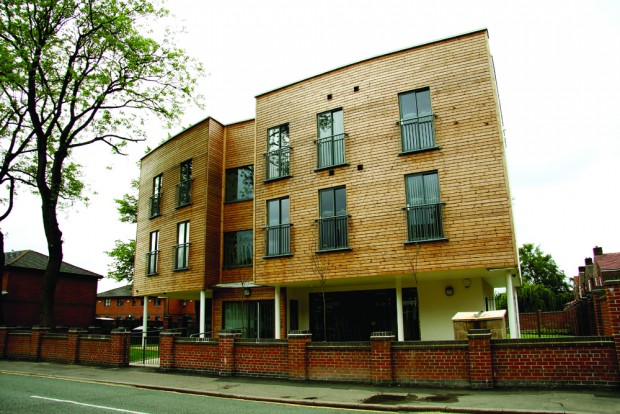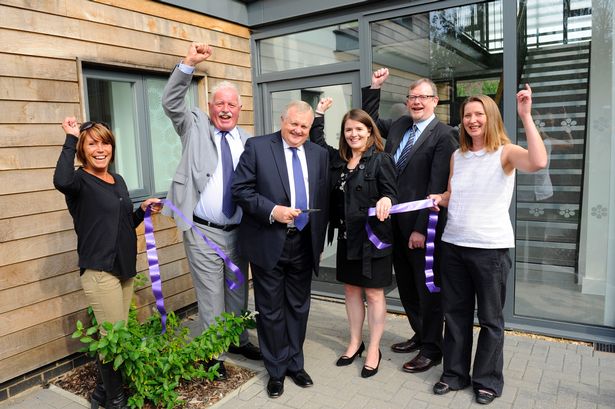If you want to get a feel for how important housing is to standard of life, just consider everyone you know for a moment; how many different living requirements can you identify?
We all have a wide range of different needs, influenced by everything from faith and race to physical and mental health. Access to education and healthcare are similarly vital if communities are to thrive, and as we all grow older it becomes increasingly likely that we will need specialist housing of some description.
Housing, in short, is linked to almost every social indicator there is. Without quality housing that addresses the specific needs of any given group of people, living standards quickly become compromised. A one size fits all approach to house building will never be able to take the myriad potential needs into account. For that reason, it is important that our approach to supporting new housing development remains rooted in the equality agenda.
But there are, of course, many challenges to providing a supply of homes that is truly diverse. The main challenge is also the most basic; we live in a post-austerity world where finances are squeezed, and specialist housing often comes at an increased cost. There is an obvious impact on value for money, but we have to keep in mind that we are talking about homes that real people will live in which can help improve their lives.
Housing can provide more than just shelter; the equality agenda looks to maximise the benefit of funding as it can contribute towards stronger communities, improve health and wellbeing and provide a base from which people can better contribute to the area and the wider economy. In short, making people’s lives better will help make local areas better, to the eventual benefit of the whole country.
So what are we doing?
Earlier this year, Cym D’Souza Chair of BME National, said:
Our shared endeavour to maintain a diverse housing sector is at the heart of our work to make sure housing meets the diverse needs of all communities.
I agree. In fact, for me it is our approach to creating a diverse housing that puts the ‘communities’ into the HCA. It helps us consider the best ways to help local communities thrive and provide people with a better standard of life.
The HCA not only works with large providers but also will smaller, often community-based organisations that are focused on meeting the needs of their communities, like black and minority ethnic (BME) or faith-focused organisations. By doing this, we can help address the specific social and economic needs those communities live in.
To deliver what local communities really need, our approach has to be proportionate to all sizes of housing organisation. We do this by allowing consortium bids to help smaller organisations receive funding they otherwise might miss out on.
And when we make decisions at board level we are also legally obliged to consider possible equality impact, with an independent Equality and Diversity Board Advisory Group (EDBAG) holding us to account. Are there any inequalities that we can address? Keeping this focus on local needs helps ensure we are providing the right sort of homes, rather than becoming too focused on numbers.
All of this leads to a range of unique housing for particular community groups that might otherwise have struggled for funding.
Safe new flats for nine people with learning and physical disabilities have been built on a former mobile homes site at Hillside Park in Wokingham, alongside accommodation for carers and two bungalows for older people thanks to £350,000 Care and Support Specialised Housing Fund support.
At Vittoria Walk in Cheltenham, the HCA’s Homelessness Change Programme of provided £3.3m to help open new supported accommodation at Cheltenham YMCA for up to 73 people.
Different faiths can require different housing solutions, too. We worked with the members of the Orthodox Jewish Community in the North East to help them establish Alder Housing, which is now a registered provider of social housing. They received £560,000 of grant funding to build 12, five bedroom homes that cater for the traditionally larger Jewish family unit.
And the EDBAG is leading a small project team exploring the viability and demand for a lesbian, gay, bisexual and transgender (LGBT) friendly housing scheme for older people. This team has been drawn from the academic community and providers that have an expertise of interest in meeting the specific needs of the LGBT community.
So what does the future hold?
As devolution becomes a greater reality, it will be more important than ever for us to help translate national funding programmes and legislation into meaningful housing offers for local communities. We are a public entity spending public money. Above all else, we must continue to provide homes and areas that are of the greatest benefit to the public.


